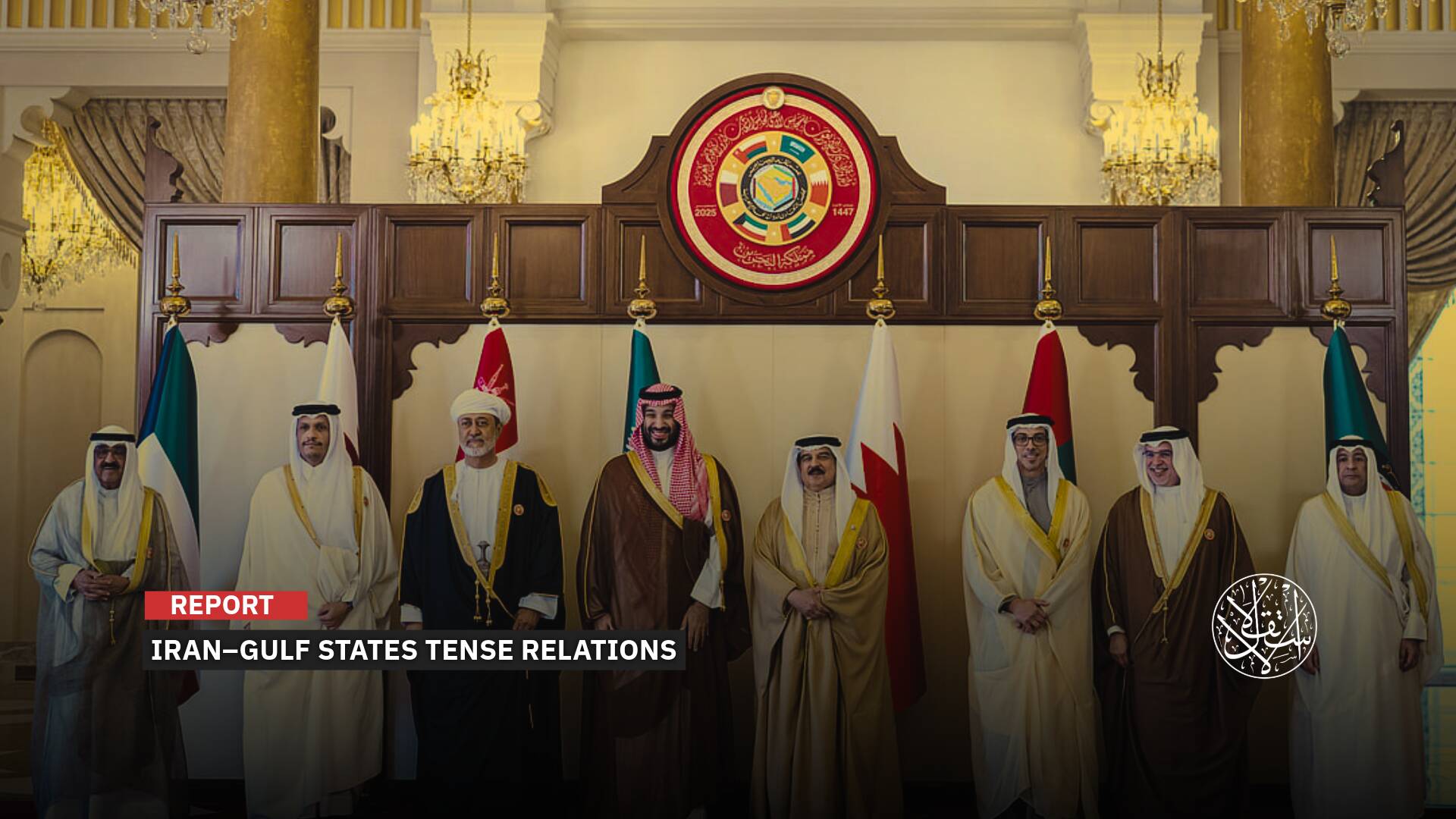Why Is Europe's Discontent With America’s Economic Policies Mounting?

As the Biden administration seeks to create a new global economic order aimed at curtailing Chinese and Russian ambitions, signs of disagreement with its European allies over economic policy have emerged after nearly two years of strong agreement following the inauguration of President Biden.
European experts warn of fears that if these differences are not resolved skillfully, the Biden administration’s vision of the new economic order could lead to a world of competing economic blocs.
One of the most significant sources of recent conflict has been the Biden administration’s announcement of a historic $370 billion in new federal subsidies for clean energy technologies, including electric vehicles, wind farms, and batteries.
This step came as part of the “Inflation Reduction Act” signed by Biden in August 2022.
Moving Factories
This move has sparked concern among European allies, who fear that American companies may be given unfair advantages over European rivals. Furthermore, the subsidies may violate international trade rules and undermine the European Union’s own climate change policies, according to some analysts.
This development has raised concerns in the EU as they fear it could divert investment from Europe to America.
European Union leaders are worried about the possibility of car manufacturers shifting their factories from Europe to the United States due to tax benefits.
The recent law allows American electric vehicle buyers to claim tax deductions, but only if 40% of the raw materials used in their battery production are extracted and processed in the United States.
According to the official website of U.S. lawmakers, the Inflation Reduction Act of 2022 aims to invest in domestic energy production and manufacturing and reduce carbon emissions by almost 40% by 2030.
In the coming decade, the U.S. government plans to invest roughly $669 billion into a variety of programs, including those aimed at reducing the deficit, promoting energy security, and addressing climate change.
This means that European automakers such as Volkswagen, BMW, and others will lose in the U.S. market.

‘Unfair Measures’
European leaders are expressing concern over the recent measures taken by the United States, which they see as unfair and exacerbating challenges to the continent’s competitiveness.
There are fears that this may force Europe into a costly arms race with the U.S. and China.
In response, European reactions to the U.S. measures began to be issued. The most recent example is European Commissioner for the Internal Market Thierry Breton canceling his attendance at the Trade and Technology Summit in the U.S., citing ongoing disputes over the U.S. Inflation Reduction Act.
Breton complained that the summit’s agenda with U.S. officials “no longer provides enough space for issues of interest to many European industry ministers and companies.”
In another example, French President Emmanuel Macron expressed his concerns to Senator Joe Manchin in Washington, D.C., telling him, “You’re hurting my country,” after Manchin’s vote (No. 50) decided the passage of the law in its final form, given Joe Biden’s Senate majority.
The divisions between Europe and the U.S. are also highlighted in the Dutch government’s public stance on U.S. pressure to cut ties with China’s main producers of chip manufacturing equipment, ASML and ASM International.
While the United States has launched a campaign to block sales of high-end semiconductors and chip-making equipment to China, allies such as Japan and the Netherlands have not been persuaded.
Dutch Economy Minister Micky Adriaansens stated that her country was “very positive” about relations with China and that Europe and the Netherlands “should have their own strategy” on controlling exports to Beijing.
These tensions have been partly attributed to Russia’s war on Ukraine, with the United States and Europe maintaining a united front over sanctions against Russia and military aid to Ukraine. However, the continent has paid a much higher economic price for the conflict.

Professor and economist Mourad Kouachi said Washington “took advantage of the energy crisis [after the Ukraine war] and started exporting gas to some European countries at prices that were 4 times higher than the price Russia was exporting to European countries.”
“Europe was involved in the Russian war because of its dependence on Washington, and the U.S. economy has become the biggest beneficiary of the crisis,” he told TRT Arabic.
“The United States has become a safe haven for many European capital and global investments, and has benefited from the energy crisis and has been able to raise and sell it at high prices even to its European ally,” he said.
Natural gas prices in most European countries, for example, have risen as much as 10 times U.S. levels, putting European industry at a competitive disadvantage.
Inflated Prices
The United States has been assisting Europe in reducing its reliance on Russian gas by providing liquefied natural gas (LNG) exports. However, according to experts, these LNG exports are currently being sold at inflated market prices, which has raised concerns among European leaders. France’s ambassador to Washington, Philippe Etienne, expressed gratitude for the United States’ efforts to help Europe but also noted that the price of LNG exports is problematic. Etienne’s comments suggest that despite the benefits of these exports, Europe may need to consider alternative options if the pricing issue cannot be resolved.
French Ambassador to the U.S. Philippe Etienne: We must diversify our energy supply https://t.co/484tiUzZNW pic.twitter.com/e17L80rBUc
— Bloomberg TV (@BloombergTV) March 25, 2022
The current geopolitical climate has resulted in a sense of urgency between the United States and Europe due to the dual threat of Russia and China. The two sides are now working together to resolve potential long-lasting economic disputes.
French President Emmanuel Macron recognized the need for cooperation, stating that there is no alternative but to work together.
However, economist Mourad Kouachi points to a “hidden conflict” between the United States and the European Union that is causing divisions among European countries due to their involvement in the Ukraine war and Europe’s energy and economic crises.
He pointed to the divisions that European countries have witnessed among themselves due to the Ukraine war and the involvement of the Brussels bloc in it “directly,” as well as “the energy crisis that Europe is witnessing and the economic crisis in general, which has produced great popular pressure.”
“What has fueled divisions within the European Union is the difference between governments and supporters of U.S. policies,” he noted.
“There are European governments that have blind obedience to Washington, while there are others that want to get out of the robes of American control, which has fueled divisions within Europe,” he added.
European Single Market
Politico Europe newspaper suggests that the completion of the European single market project through greater coordination is crucial for the Brussels bloc to find solutions.
Experts propose several measures to strengthen Europe’s position in the global market, such as the creation of an EU-wide regulator for digital markets and telecommunications, harmonized corporate governance rules, and the removal of barriers to cross-border professional services.
Moreover, investment in new energy transmission lines is needed to increase the security and flexibility of supplies within the continent.
Rather than relaxing state aid rules, competition rules should be changed to take into account global competitors, allowing Europe to create companies capable of countering the United States and China.
In the same context, on February 1, 2023, the European Commission presented a plan to address the challenges posed by the U.S. Inflation Reduction Law while combating climate change, known as the Green Deal.
The plan has four pillars: creating an enabling regulatory environment for industries aiming to achieve zero emissions, providing national and European financing, ensuring the right skills for the green transition, and setting an ambitious trade agenda.
European Commission President Ursula von der Leyen stressed the importance of a level playing field in global competition and the European single market while welcoming the U.S. law in combating climate change.
However, EU countries generally agreed that the U.S. Inflation Reduction Act endangers the competitiveness of key sectors driving the green transition in European industry, according to Margrethe Vestager, Executive Vice President of the European Commission.












